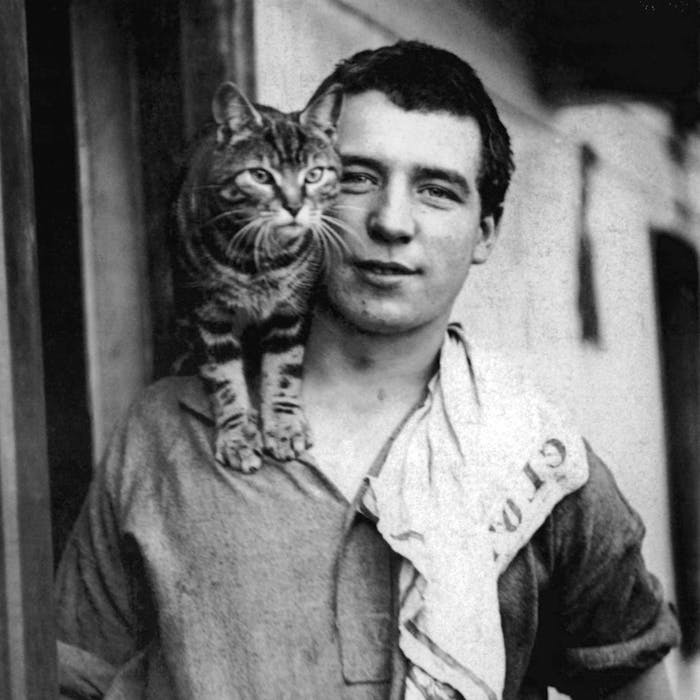
Mrs Chippy - the faithful cat that sailed with Shackleton
Mrs Chippy was the ship's cat that accompanied explorer Sir Ernest Shackleton's ill-fated attempt to make the first land crossing of the Antarctic continent in 1914–1917.
Mrs Chippy, a tabby, was taken on board Shackleton's ship Endurance, by carpenter and master shipwright Harry "Chippy" McNeish. The cat acquired its name because, once aboard, it followed McNeish around like an overly attentive wife. By the time it was realised that the cat was male, it was too late and the name stuck.
He was described as "full of character" by members of the expedition and impressed the crew with his ability to walk along the ship's inch-wide rails in even the roughest seas. In Captain Frank Worsley’s diary, he describes Mrs Chippy climbing the rigging "... exactly after the manner of a seaman going aloft".
Mrs Chippy’s voyage was not without incident. In September 1914, the cat jumped overboard through one of the cabin portholes but the officer on watch, Lt. Hudson, heard his screams and turned the ship smartly round and the cat was retrieved by the ship’s biologist, Robert Clark, using sample nets.
The expedition ran into difficulties when the Endurance became trapped in pack ice. Shackleton hoped to sail out of the ice the following summer, but, after many months, the ice began to crush the ship and it was clear they would all have to abandon it and try to reach safety by foot and lifeboat.
In these circumstances, Shackleton gave the order to shoot Mrs Chippy and several of the expedition's dogs. Though this surely saved the cat from a slower, more miserable death on the ice, McNeish never forgave him.
The crew of 28 men took to the lifeboats to reach the inhospitable, uninhabited Elephant Island. Shackleton and five others, including McNeish, then made an 800-mile (1,300 km) open-boat journey in the life boat James Caird to reach South Georgia. McNeish's modifications to the boat proved essential. From there, Shackleton was eventually able to mount a rescue of the men waiting on Elephant Island and bring them home without loss of life.
Despite their desperate struggle for survival, McNeish and Shackleton remained on bad terms. As a result Shackleton did not recommend McNeish for the award of a Polar Medal, despite the vital part his carpentry skills had played in ensuring the survival of the men.
McNeish died in New Zealand in 1930, and was buried with full naval honours, and on his grave is a statue of Mrs Chippy.
Further reading
Links to external websites are not maintained by Bite Sized Britain. They are provided to give users access to additional information. Bite Sized Britain is not responsible for the content of these external websites.
